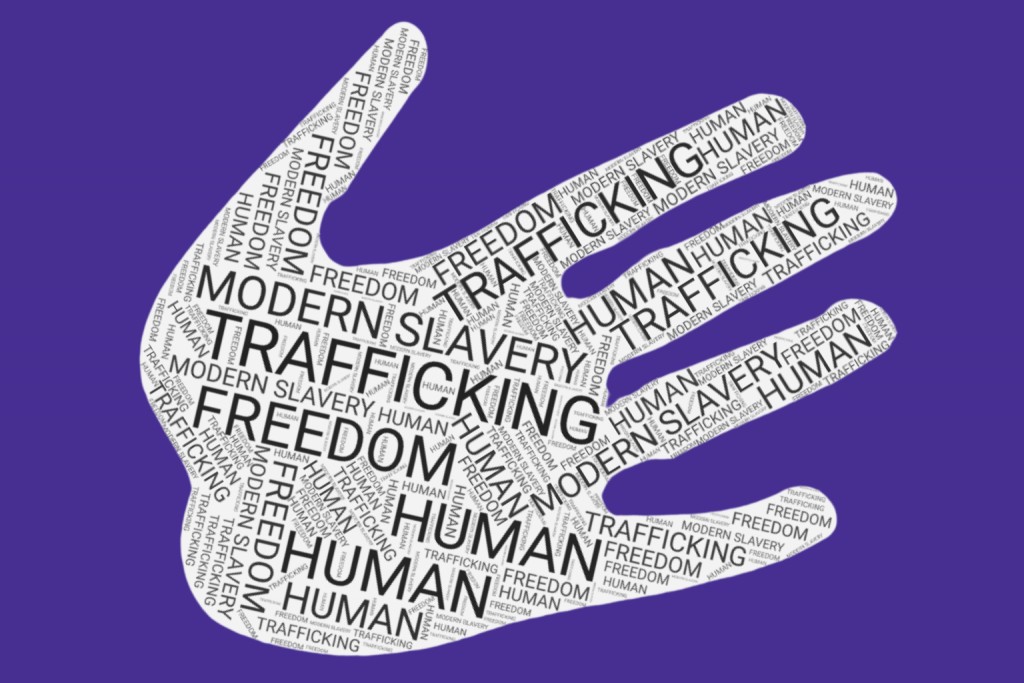By Dr. Vicky Basra, President & CEO
I can barely breathe just talking about it – the stages that girls and young women experience when being groomed into the destructive cycle of human trafficking and the condemnation and punishment that follows. I recently completed my dissertation which focuses on the lived experiences of Commercially Sexually Exploited (CSE) females during the grooming/recruitment phase and the impact of predatory helpfulness tactics used by pimps early in the grooming process. As a society, we don’t talk enough about the behaviors of pimps/traffickers that happen even before the sexual exploitation starts. Pimps/traffickers use manipulative and dangerous tactics that are initially presented as helpful and supportive, but later are the same mechanisms used to force individuals into the commercial sex trade.
As the number of females being commercially sexually exploited (CSE) in the United States increases each year (Polaris, 2019), and as we continue to learn more about the behaviors of the traffickers, it is essential to improve the development and implementation of practices and policies and reduce the criminalization of CSE females. More than 11,000 victims are bound to their perpetrators and trapped in the commercial sex trade (Polaris Project, 2018). This number doesn’t include those who we label as “prostitutes” even though their lived experiences fall within the definition of the Trafficking Victims Protection Act of 2000.
Let’s be clear – girls and women are being victimized in every community regardless of zip code, economic status or education level. Let’s be clearer- we can work together to stop it.
What can you do? Commit to education that challenges the victim blaming culture that makes the objectification and violation of women acceptable and their fault. Commit to creating a culture that rejects the labels of “prostitute” or “bad girl” and sees girls as children who are living in crisis and women as human beings who lacked choice. Transition the focus of prevention from identifying “red flags” to preventing the behaviors of the pimps/traffickers and the johns and question why we live in a culture that glorifies their behaviors. We need to move our prevention models away from victim avoidance to primarily addressing perpetrator behaviors.
Currently, the Florida Department of Education requires trafficking curriculum for students in middle and high school. Check with your district to see what your children are learning. Take it a step further: talk about it at home. Challenge victim shaming/blaming language and societal norms, and educate yourself about the issues surrounding human trafficking in your community.
The need for more wraparound services, addressing the whole needs of the victim and developing trauma informed care, is critical as well. That’s what I do every day at the Delores Barr Weaver Policy Center where we provide resources, counseling, and most importantly, survivor mentors to engage individuals in victim/survivor centered services.
I get it. It’s daunting to know where to start to help. Here are some ideas. First, watch this webinar, learn about organizations committed to doing the work in your communities, and commit to “See the Girl” not as a criminal but as a child who deserves our protection not our punishment. See the Girl most of all, as someone who deserves a healthy, safe future that is free of shame and full of hope.
The Policy Center is the regional provider the OPEN DOORS OUTREACH NETWORK, a program run in partnership with Voices for Florida that serves commercially sexually exploited and trafficked victims ages of 10 to 24, regardless of gender, sexual orientation, or disability. Our team provides total care management and consists of a team of clinicians, regional advocates, and survivor mentors and includes a 24 hour access line (904-412-8923)
Donate now and your gift’s impact is tripled. Donate Now & It’s Matched!
